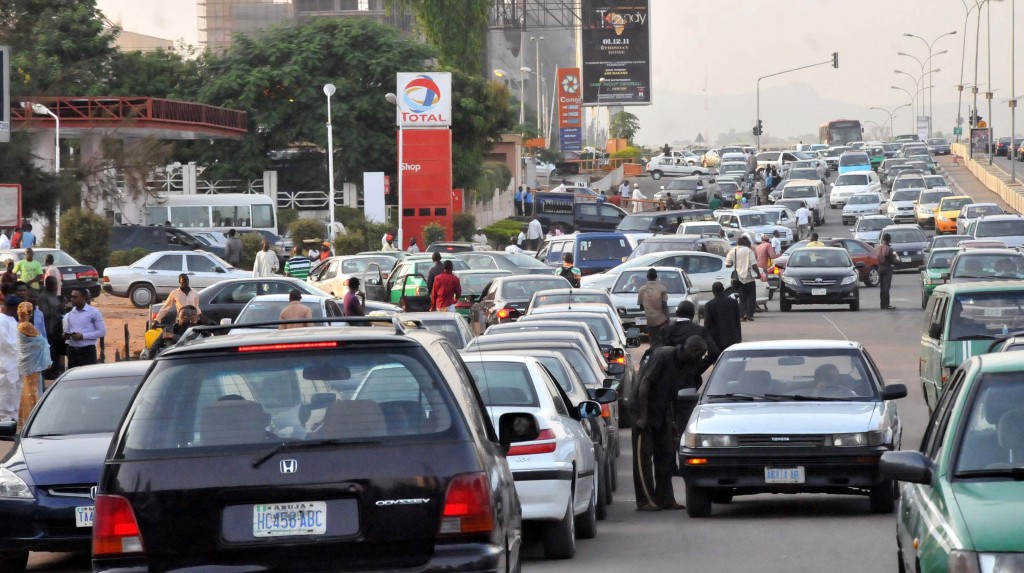By Jaafar Jaafar
I am not happy with the gluttony of my car. I feel it’s more voracious during scarcity. So sad that it adds no weight despite feeding fat on my billfold. In no time, the machine guzzles litres mercilessly, making me wonder if there is a mechanical placebo to adjust the engine’s psychology.
But all motorists in Nigeria nowadays bear the brunt of the nationwide scarcity. Two days ago in Abuja, I managed to go out around 12 midnight, hoping to refill at a Maitama filling station. As I drove for about five kilometers, the sight of long a line of vehicles snaking to eternity frightened me. I gave up and returned home. I can’t sleep at filling station, I mused.
Yesterday I had to spend N5,500 to buy 20 litres of petrol. This means I bought each litre at the cost of N250, against the official rate of N87. Ordinary the rate should be lower in the wake of oil price fall in the international market.
To say Nigerians are suffering is understatement. We are groaning under a biting scarcity of basic commodities. The electricity is scarce. Our taps have long been dry. Nigerians have given up water, long ago. We contrive to live. In Nigeria, utility service provision lies upon the citizens. Everything is private in this country. We dig private sewer line, drill private water wells, use private transportation, generate private electricity and go to private hospitals and schools for quality service delivery. Nigerians seem to have high tolerance threshold.
With the aforesaid burden on citizens, there is every tendency that Nigerians could be corrupt. Our salary is stationary, while the price is in motion. Unless if one has a “side business”, the salary of an average worker cannot support him.
The economic situation in Nigeria today is taking the unemployment rate higher. The states are bankrupt as they go on borrowing spree. Governors owe workers’ salaries as uncertainty looms over payment of minimum wage.
The problem with fuel scarcity is that it affects the prices of other commodities. Nigeria is a country where there is no price control, and once prices go up, they hardly come down. Prices of achaba, garri, sugar, soap or bus ticket hardly come down when such circumstances trigger them.
Naira keeps losing gravity, especially at the parallel market. Last week the currency lost more than N20, making exchange rate stand at about N290 to $1. The price of crude, the livewire of our economy, keeps falling. The economy is not in good shape, at all.
The National Bureau of Statistics, NBS, said in November that Nigeria recorded the lowest growth in real Gross Domestic Product, GDP, since 2011. The GDP, which is the total value of all goods and services available for use and export in a country for a given period, is termed as the most important indicator of economic wellbeing of a nation. Ours is at its lowest ebb in the recent times.
In a country where there is no metro railway, with a near-comatose intercity lines and a dysfunctional aviation sector, road transportation is the only available transportation system we have. In view of this reality, government should have planned ahead to avoid putting the nation at standstill.
The economy is seemingly rudderless. Economic experts and the Economist Magazine described our minister of Finance, Kemi Adeosun as inexperienced.
“Africa’s biggest economy,” the Economist wrote in November, “which relies on oil for 70% of its revenue, is sputtering as prices fall. Economic policy has been adrift since Mr Buhari came to power, and investors complain about the central bank’s use of trade controls and import restrictions.
“However, the new finance minister, an accountant who cleaned up the books of one of Nigeria’s smaller states, is poorly qualified for the job.”
As write this, the president is yet to appoint his Economic Adviser. I also doubt if there is economic team on ground. Had there such a team at the inception of this government, the scarcity would have been foreseen and tackled. Perhaps a supplementary budget, capturing the subsidy payments and all other critical needs, would have long been prepared, presented to the National Assembly for passage and assented by the president.
Sincerely, I pity President Muhammadu Buhari for coming in the era of recession and biting economic crunch. But I blame him, as president not even as minister of Petroleum, for failure to plan ahead and make the ONLY commodity we produce at export quality and quantity unavailable to the citizens.

 Football7 days ago
Football7 days ago
 Health & Fitness1 day ago
Health & Fitness1 day ago
 Featured5 days ago
Featured5 days ago
 Comments and Issues7 days ago
Comments and Issues7 days ago
 Education6 days ago
Education6 days ago
 Business6 days ago
Business6 days ago
 Crime6 days ago
Crime6 days ago
 Business5 days ago
Business5 days ago

